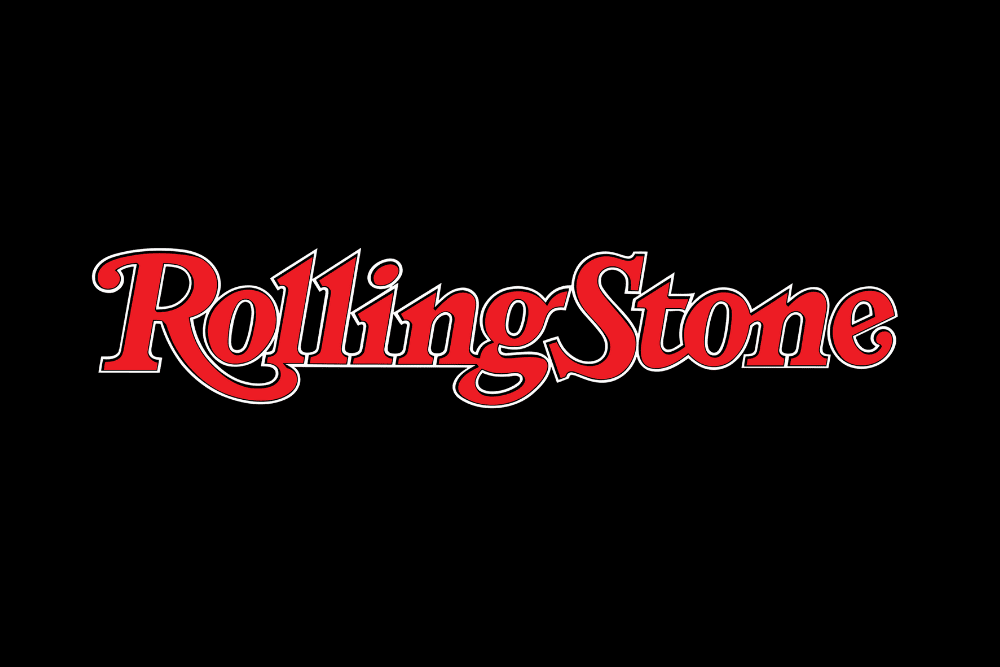Your Rights Changed in 2022: Sexual Harassment Claims No Longer Bound by Arbitration
If you’ve experienced sexual harassment at work and discovered an arbitration clause in your employment contract, you’re not alone in feeling trapped. Many employees across Los Angeles have faced this same dilemma – wanting to pursue justice but feeling blocked by fine print they signed on their first day. The good news is that a groundbreaking federal law enacted in March 2022 fundamentally changed your rights. The Ending Forced Arbitration of Sexual Assault and Sexual Harassment Act now makes pre-dispute arbitration agreements invalid and unenforceable for sexual harassment claims, giving you the freedom to choose how you seek justice. This shift represents one of the most significant workplace rights victories in recent years.
💡 Pro Tip: Even if you signed an arbitration agreement years ago, it cannot be enforced against your sexual harassment claim if the harassment occurred after March 3, 2022.
Don’t let the complexities of your case discourage you from seeking justice. Reach out to MSD Lawyers for guidance, and discover how the new legal landscape can benefit you. Give us a call at 213-401-0823 or contact us today to discuss your situation.

Understanding Sexual Harassment Laws in Employment
Sexual harassment remains a serious workplace violation that affects employees across all industries. Under both federal and California state law, sexual harassment is recognized as a form of sex discrimination that violates Title VII of the Civil Rights Act of 1964. This federal statute applies to employers with 15 or more employees, while California’s Fair Employment and Housing Act provides even broader protections, often covering smaller employers. When you work with a sexual harassment lawyer in Los Angeles, they can help determine which laws apply to your specific situation and ensure your rights are fully protected under both federal and state statutes.
The legal definition encompasses any unwelcome sexual advance, oral or physical conduct of a sexual nature, or gender-based comments or actions that create an offensive or hostile work environment (Cal. Gov’t Code § 12940(j); leginfo.legislature.ca.gov. California law recognizes two distinct types: quid pro quo harassment (where employment benefits are conditioned on sexual favors) and hostile work environment harassment. Importantly, the conduct must both actually offend you and would offend a reasonable person in your position – a standard that courts use to evaluate claims objectively while considering your specific circumstances (Cal. Gov’t Code § 12923(a)–(b); leginfo.legislature.ca.gov; see also Harris v. Forklift Systems, Inc., 510 U.S. 17 (1993)).
💡 Pro Tip: Document every incident of harassment immediately, including dates, times, witnesses, and exact words or actions. This contemporaneous evidence strengthens your case significantly.
What to Expect: The Process After Reporting Sexual Harassment
Understanding the timeline and process for addressing sexual harassment helps you make informed decisions and set realistic expectations. California law requires all employers to have written policies for preventing harassment, discrimination, and retaliation – regardless of company size. When harassment occurs, you have multiple paths forward, each with specific timeframes and procedures. Consulting with a sexual harassment lawyer in Los Angeles early in the process ensures you don’t miss critical deadlines while preserving all your legal options.
-
Report internally to HR or management first – this triggers your employer’s legal duty to investigate promptly and thoroughly
-
File a complaint with the California Civil Rights Department (CRD) within three years of the last act of harassment – a much longer deadline than many other states provide
-
The CRD investigates using a “preponderance of evidence” standard, meaning they determine if it’s more likely than not that harassment occurred
-
If CRD finds sufficient evidence and settlement fails, they may file a civil complaint seeking court orders, punitive damages, and attorney’s fees on your behalf
-
Alternatively, obtain a Right-to-Sue Notice from CRD to pursue a private lawsuit in civil court with your chosen attorney
💡 Pro Tip: Keep working while your complaint processes – Title VII explicitly prohibits employers from retaliating against employees who report harassment or assert their rights.
How a Sexual Harassment Lawyer in Los Angeles Protects Your New Rights
The landscape of workplace sexual harassment claims transformed dramatically with the 2022 federal law eliminating forced arbitration, , known as the Ending Forced Arbitration of Sexual Assault and Sexual Harassment Act of 2021 (Public Law No. 117-90, amending 9 U.S.C. §§ 401–402) (congress.gov; eeoc.gov).. This means employers can no longer use arbitration clauses in contracts to prevent you from pursuing your case in court, where you have access to a jury trial and potentially higher damages. While parties can still voluntarily agree to arbitration after a dispute arises, the choice now rests with you rather than being predetermined by your employment contract. MSD Lawyers stays current with these evolving protections and helps clients understand how recent legal changes strengthen their position against workplace harassment.
Working with an experienced legal team becomes especially important given the complexity of overlapping federal and state protections. California’s robust anti-harassment laws often provide broader coverage than federal standards, and understanding which avenue offers the strongest path forward requires careful analysis of your specific situation. A skilled sexual harassment lawyer in Los Angeles can evaluate whether pursuing claims under Title VII, California’s Fair Employment and Housing Act, or both serves your interests best while ensuring all procedural requirements are met within required timeframes.
💡 Pro Tip: Request a copy of your personnel file and any workplace policies before leaving your job – you have a legal right to these documents and they often contain crucial evidence.
Remote Work Considerations: Sexual Harassment in Virtual Environments
The rise of remote work hasn’t eliminated workplace sexual harassment – it’s simply changed how it occurs. Digital harassment through email, chat, video calls, text messages, and other electronic communications creates the same hostile work environment as in-person conduct. California law explicitly requires employers to prevent and address harassment in virtual workspaces, recognizing that inappropriate sexual comments in a Zoom meeting or unwanted advances via company messaging platforms violate the same laws as traditional workplace harassment. When seeking help from a sexual harassment lawyer in Los Angeles, document all digital evidence by taking screenshots and preserving electronic communications before they can be deleted.
Unique Challenges of Proving Virtual Harassment
Virtual harassment often leaves a clearer digital trail than in-person incidents, which can strengthen your case. However, remote work also presents unique challenges – witnesses may not observe interactions occurring in private messages, and employers might claim less responsibility for conduct outside traditional office settings. California courts have consistently held employers liable for harassment occurring through work-related digital platforms, regardless of physical location. The key lies in establishing that the harassment relates to your employment and affects your ability to perform your job, whether you’re working from downtown LA or your home office.
💡 Pro Tip: Enable read receipts and save all communications to personal devices or cloud storage – employers cannot delete evidence you’ve preserved independently.
Financial and Emotional Impacts: What Damages Can You Recover?
Sexual harassment causes both economic and personal harm that California law recognizes through various forms of compensation (Cal. Gov’t Code § 12965(b); leginfo.legislature.ca.gov; calcivilrights.ca.gov/complaintprocess). Beyond lost wages from constructive dismissal or retaliation, victims often experience significant emotional distress, anxiety, and depression requiring professional treatment. The elimination of mandatory arbitration clauses in contracts means these damages can now be presented to a jury, which often results in more substantial awards than private arbitration typically provides. Your sexual harassment lawyer in Los Angeles will help document both tangible losses and intangible suffering to pursue comprehensive compensation.
Punitive Damages and Systemic Change
California courts can award punitive damages when employers act with malice, oppression, or reckless disregard for employee rights. These damages serve to punish particularly egregious conduct and deter future violations. Since the 2022 change to arbitration laws under the Ending Forced Arbitration of Sexual Assault and Sexual Harassment Act of 2021 (Pub. L. No. 117-90, amending 9 U.S.C. §§ 401–402; congress.gov), more harassment cases reaching court have resulted in significant punitive awards, especially when employers failed to investigate complaints properly or permitted known harassers to continue their behavior. The California Civil Rights Department can also seek institutional changes through court orders, requiring employers to implement new training programs, revise policies, or make structural changes to prevent future harassment.
💡 Pro Tip: Keep receipts for therapy, medical treatment, and any expenses related to the harassment – these documented costs strengthen your damage claims.
Employer Training Requirements and Your Right to a Safe Workplace
California maintains some of the strictest workplace training requirements in the nation, mandating specialized instruction for complaint handlers and investigators. These programs must cover relevant Sexual Harassment Laws in Employment, investigation procedures, witness interview techniques, credibility assessment, and proper documentation – with introductory training typically lasting a full day or longer. When employers fail to provide adequate training or ignore these requirements, it strengthens your harassment claim and may support additional penalties. Understanding these obligations helps you recognize when your employer has fallen short of their legal duties.
Red Flags: When Employers Violate Training and Policy Requirements
Watch for these warning signs that your employer may be violating California’s harassment prevention requirements: no written anti-harassment policy distributed to employees, supervisors who dismiss complaints without investigation, HR representatives who lack proper training certifications, or investigations that seem predetermined or superficial. The CRD can investigate these systemic failures alongside your individual harassment claim. Employers who cut corners on prevention and training often face harsher outcomes in court, as judges and juries view these lapses as contributing to the hostile environment you experienced.
💡 Pro Tip: Request documentation of your supervisor’s and HR’s anti-harassment training – inadequate training can establish employer negligence in your case.
Frequently Asked Questions
Understanding Your Rights and Options
Many employees have questions about their rights when facing workplace sexual harassment, especially given recent changes to arbitration laws. These answers address the most common concerns we hear from individuals seeking legal guidance.
💡 Pro Tip: Write down your questions before consulting with an attorney – preparation helps you make the most of your initial consultation.
Next Steps and Legal Process
Taking action against sexual harassment requires understanding both your rights and the procedures involved. Whether you’re just beginning to explore your options or ready to file a formal complaint, knowing what to expect helps you move forward confidently.
💡 Pro Tip: Don’t wait to seek legal advice – early consultation helps preserve evidence and ensures you meet all filing deadlines.
1. Can my employer still force me into arbitration if I signed an agreement before March 2022?
No, if the sexual harassment occurred after March 3, 2022, your pre-existing arbitration agreement cannot be enforced for those claims. The Ending Forced Arbitration of Sexual Assault and Sexual Harassment Act applies retroactively to all arbitration agreements, regardless of when you signed them. However, for harassment that occurred entirely before this date, the arbitration clause may still apply. A sexual harassment lawyer in Los Angeles can review your specific timeline and advise on the best approach.
2. What if my employer has fewer than 15 employees – am I still protected under Los Angeles sexual harassment laws?
Yes, California state law often provides broader protection than federal law. While Title VII requires 15 or more employees, California’s Fair Employment and Housing Act covers employers with as few as five employees for harassment claims. Some local Los Angeles ordinances may provide additional protections. Even very small employers must maintain harassment-free workplaces and can face liability for failing to address sexual harassment.
3. How is sexual harassment proven in court versus arbitration proceedings?
Both courts and arbitrators use the “preponderance of evidence” standard, meaning it’s more likely than not that harassment occurred. However, court proceedings offer several advantages: jury trials (where community members judge your case), public proceedings that hold employers accountable, fuller discovery processes to obtain evidence, and the right to appeal unfavorable decisions. Courts also tend to award higher damages than arbitrators, particularly for emotional distress and punitive damages.
4. What’s the difference between filing with the CRD versus going directly to court with a Los Angeles workplace harassment attorney?
You must file with the California Civil Rights Department first to exhaust administrative remedies before suing in court. The CRD investigates at no cost to you and may pursue the case themselves if they find merit. However, the process can be slow, and the CRD has limited resources. Many individuals obtain a Right-to-Sue Notice from the CRD and proceed with private counsel, giving them more control over their case timeline and strategy. The three-year deadline for filing with CRD is generous compared to other states.
5. If I report sexual harassment, can my employer fire me or cut my hours in retaliation?
No, both federal and California law strictly prohibit retaliation against employees who report harassment or participate in investigations. Retaliation includes firing, demotion, schedule changes, hostile treatment, or any adverse employment action. If you experience retaliation, it becomes a separate legal claim with its own damages. Document any changes in treatment after reporting harassment, as retaliation claims are often easier to prove than the underlying harassment and can result in significant additional damages.
Work with a Trusted Sexual Harassment Lawyer
The elimination of forced arbitration for sexual harassment claims represents a major victory for workplace rights, but navigating these new protections still requires experienced legal guidance. Understanding how the Ending Forced Arbitration Act interacts with California’s already strong anti-harassment laws, managing filing deadlines with the CRD, and building the strongest possible case demands thorough knowledge of both recent changes and established precedents. Whether you’re facing quid pro quo demands or enduring a hostile work environment, having skilled legal representation ensures your voice is heard and your rights are fully protected. The choice is now yours – not your employer’s – on how to pursue justice for workplace sexual harassment.
Empower yourself with the legal choices now available to you. Contact MSD Lawyers for a thoughtful discussion on your situation. Dial 213-401-0823 or contact us today to explore your options.












